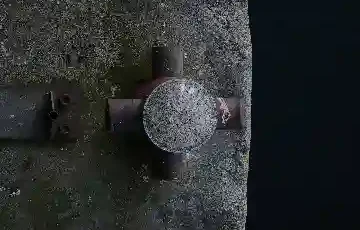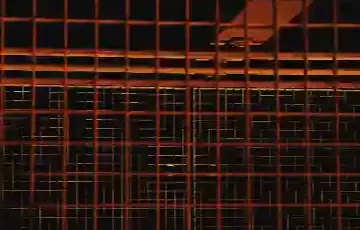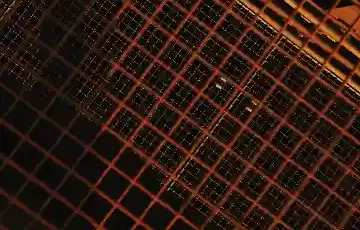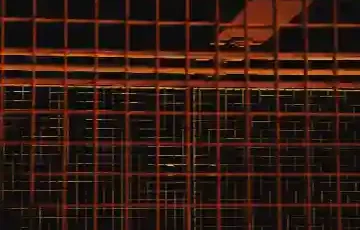
What constitutes a limitation period in Dutch law?
A limitation period defines the timeframe within which you must initiate legal proceedings. After expiration, you cannot enforce your right through court action (Article 3:307 Dutch Civil Code). Consequently, you lose the legal mechanism to compel performance through judicial intervention, although the underlying claim continues to exist materially.
The Dutch legislator employs limitation as a legal endpoint: it guarantees legal certainty and prevents defendants from indefinitely accounting for potential proceedings. 30% of all civil procedures in Amsterdam cite limitation as a defense, making this subject essential for every business owner contracting commercially in the Netherlands.
Therefore, understanding limitation periods protects your commercial interests and prevents costly procedural failures. Moreover, Dutch courts strictly enforce these deadlines without discretionary extensions.
Which main rules govern limitation under Dutch law?
The Dutch Civil Code provides a general limitation period of 20 years (Article 3:307 DCC). However, this main rule rarely applies in practice, since the legislator has established shorter specific terms for most claim types. These exceptions dominate legal practice: approximately 85% of commercial disputes fall under a five-year term.
Five-year limitation period: the most common scenarios
The five-year term applies to various claims frequently occurring in commercial relationships. Understanding these categories helps you protect your rights effectively.
Performance claims arising from contracts expire five years after the performance became due. This concerns, for example, fulfillment of a service contract or payment under a loan agreement. Therefore, as a creditor, you must act promptly once your debtor defaults.
Periodic payments – such as interest, rent, or wages – also carry a five-year term from the moment of each payment’s due date. An Amsterdam landlord who waits three years to collect overdue rent still has two years remaining to initiate proceedings.
Claims for reversal of an undue payment expire within five years. However, the term only starts when the disadvantaged party was actually able to institute legal proceedings (Article 3:310 DCC).
Damage claims expire within five years after the injured party knew both the damage and the liable person. Nevertheless, an absolute maximum term of 20 years applies after the damage-causing event. This dual structure protects victims against early expiration when unaware, while simultaneously granting defendants legal certainty after two decades.
Dissolution or remedy for breach of contract must be claimed within five years after you became aware of the deficiency, with an absolute limit of 20 years after the breach itself occurred.
Shorter limitation periods: consumer protection and sales
Consumer purchases carry a shortened term of two years from the purchase date for payment claims (Article 7:28 DCC). This specific regulation protects consumers against prolonged collection procedures, yet simultaneously limits the period in which sellers can enforce payment.
Commercial sales contracts also feature special rules: the buyer must report complaints about delivered goods within reasonable time, after which a two-year term begins for claims based on non-conformity (Article 7:23 DCC).
How do you interrupt the running limitation period under Dutch law?
Interruption constitutes the legal mechanism through which you break a running limitation period. After valid interruption, a new term with the same duration begins (Article 3:317 DCC). This legal reset offers creditors strategic opportunities to keep claims alive without immediately litigating.
Interruption acts: what options do you have in the Netherlands?
You can interrupt limitation by performing various procedural actions. Serving a summons forms the most definitive interruption act: once the bailiff effectuates service, you interrupt the limitation. This interruption persists as long as the proceedings continue.
Conservatory attachment also interrupts limitation. An Amsterdam creditor who places conservatory attachment on assets of a Rotterdam debtor automatically interrupts the limitation period of his claim.
Written notice of default offers an alternative to expensive proceedings. For claims to perform an obligation (including damages), a written demand suffices in which you explicitly reserve your right to performance. This written summons must be clear enough to warn the counterparty that you contemplate potential proceedings, enabling them to preserve relevant data and evidence for defense.
However, this simplified interruption method does not work for all claim types. For possessory claims, revendication claims, or nullification claims, you must actually choose a legal remedy within six months after written notice. Namely, these claims require formal judicial determination, making mere written contact insufficient.
Can written rejection qualify as interruption under Dutch law?
Dutch courts recognize that written rejection of a claim by the counterparty can qualify as interruption. Even when the defendant rejects the claim before you serve a summons, this rejection can legally qualify as interruption. This protects creditors who seek amicable settlement in good faith before litigating.
What role do mediation and settlement negotiations play in the Netherlands?
Mediation and negotiations interrupt limitation exclusively when parties agree to this in writing. Mere participation in mediation or settlement talks does not automatically interrupt the term. Consequently, parties must explicitly record that they wish to interrupt the limitation period during negotiations.
An Amsterdam lawyer will therefore standardly propose a written interruption agreement before clients initiate mediation. This practical approach prevents you from facing limitation during prolonged negotiations while seeking a solution in good faith.
When does the limitation period begin running under Dutch law?
The limitation period starts when the claim becomes due (Article 3:307 DCC). For contractual payment obligations, this means: from the date when payment must occur according to the agreement. Absent concrete arrangements, the performance becomes immediately due upon contract conclusion.
Damages: the subjective and objective commencement moments
Damage claims carry a nuanced commencement regulation. The five-year term begins when the injured party knows both following elements:
- The existence of damage
- The identity of the liable person
This subjective lead-in protects victims who initially do not realize they suffered damage or who is responsible. However, an objective maximum term of 20 years applies after the damage-causing event, regardless of the moment of awareness.
Practice example from construction law: An Amsterdam development project shows construction defects after ten years. The owner discovers the damage in 2023 and identifies the contractor as liable. Although construction occurred in 2013, the five-year term only begins in 2023. Nevertheless, complete limitation would occur in 2033 (twenty years after the construction error), even if damage only becomes visible thereafter.
Can parties contractually modify limitation periods under Netherlands law?
Dutch law prohibits parties from extending, shortening, or suspending statutory limitation periods. Contractual provisions modifying limitation are void (Article 3:322 DCC). This mandatory legal norm ensures economically stronger parties cannot circumvent statutory protection.
Naturally, parties can agree in writing to interrupt a running term during negotiations. However, this forms a temporary procedural measure, not a permanent contractual deviation from the limitation regime.
How does limitation function as procedural defense in the Netherlands?
The defendant must actively invoke limitation in his statement of defense. Dutch judges do not apply limitation ex officio: without explicit invocation by the defendant, the judge treats the claim substantively (Article 3:322 DCC). This rule respects the procedural autonomy of parties.
Burden of proof: who must prove what under Dutch law?
The party invoking limitation – typically the defendant – carries the burden of proof for all facts supporting limitation. However, the plaintiff bears the burden of proof when claiming that interruption occurred. This burden distribution reflects the principle that plaintiffs must prove their own procedural acts.
An Amsterdam creditor claiming to have sent an interrupting notice must provide: proof of dispatch, content meeting interruption requirements, and timing of receipt by the debtor. Mere assertions do not suffice.
Timing: when do you raise limitation in Dutch proceedings?
Although defendants preferably raise limitation in their first statement, the right remains open to introduce this defense in later procedural stages. Belated invocation may conflict with proper case management, especially when plaintiffs become obliged to perform costly remedial actions.
Dutch case law recognizes no automatic forfeiture of the limitation right through delay in raising it. Nevertheless, circumstances may entail that postponement is procedurally undesirable, which judges consider in their case management.
What happens when multiple limitation periods apply under Dutch law?
When identical factual complexes support multiple legal grounds with divergent limitation periods, the principle applies that each claim carries its own term. Concurrence arises, for example, when a breach yields both contractual damages and tort.
Selecting the most favorable ground
Plaintiffs may choose the legal ground with the longest limitation period, provided this ground constitutes an independent legal basis. You cannot circumvent a short term through constructions by presenting the same claim under an alternative label.
Concrete scenario: An Amsterdam software supplier delivers defective modules. The purchaser can choose between:
- Contractual non-conformity (Article 7:23 DCC): two years after notification
- Tort (Article 6:162 DCC): five years after knowledge of damage and tortfeasor
Provided both grounds are genuinely legally substantiated, the purchaser may choose the tort route when the contractual term has expired. However, he must demonstrate that the supplier also acted negligently outside the contract.
Which limitation law applies to international contracts in the Netherlands?
Limitation periods qualify under Dutch substantive law, not procedural law. When an agreement or tort is subject to foreign law, the Dutch court applies the limitation rules of that foreign legal system.
Private international law reference rules and limitation
Dutch private international law rules (Rome I Regulation for contracts, Rome II Regulation for tort) determine which national law applies. That applicable law also governs limitation periods.
A Dutch company litigating against a German counterparty over a contract subject to German law must account for German Verjährungsfristen. Moreover, the German three-year general term (§ 195 BGB) must be respected, not the Dutch five-year term.
What special features apply to specific legal areas under Dutch law?
Dutch legislation provides sector-specific limitation rules deviating from general regulation. These exceptions reflect the special nature of certain legal relationships.
Employment law: employee protection in the Netherlands
Employment claims expire within five years (Article 3:307 DCC), conforming to the general rule for performance claims. However, dismissal proceedings carry strict preclusion terms: petitions for annulment of dismissal must be filed within two months (Article 7:683 DCC).
Discrimination claims also expire within five years after the employee knew both the discrimination and the employer as responsible. Dutch employers in Amsterdam and Rotterdam must realize that injured employees can litigate up to five years after departure.
Intellectual property: patents, trademarks and copyright
IP infringement claims carry a five-year limitation period (Article 3:310 DCC) beginning when the rights holder became aware of:
- The infringement
- The infringer
This subjective lead-in can mean that infringements hidden for years remain enforceable once discovery occurs. However, the absolute 20-year maximum term also applies here.
Amsterdam trademark holders who only discover in 2024 that a competitor unlawfully used their mark since 2019 still have a five-year term from 2024. Nevertheless, they can only claim damages for the period from 2019 where infringement is demonstrable.
Competition law: cartel damage claims in the Netherlands
Follow-on damage claims after cartel decisions expire within five years after plaintiffs knew of damage and liable party. Dutch implementation of the Damages Directive ensures the limitation period does not begin earlier than the date when the cartel decision became final.
This protects injured enterprises: only when a final decision establishes the violation can they realistically identify their damage and the liable company. Consequently, the five-year term only starts upon final decision, giving affected Dutch companies sufficient time to develop damage calculations and legal strategies.
Insolvency law: pauliana and director liability under Dutch law
The pauliana claim (Article 42 Bankruptcy Act) through which trustees annul gratuitous legal acts expires within two years after bankruptcy declaration for gratuitous acts, or within six months for preferred creditors.
Director liability for improper task performance (Article 2:248 DCC) expires within five years after the company became aware of damage and the liable director. For trustees in bankruptcy, this term typically begins at bankruptcy declaration, unless earlier knowledge is demonstrable.
How do procedural acts relate to limitation in the Dutch legal system?
Changes in claim, addition of parties, or adjustment of factual basis may encounter limitation perils when these modifications effectively introduce new claims.
Claim modification and limitation perils
A claim modification falling within the original claim – for example, a reduction or increase of the claimed amount – encounters no limitation obstacles. However, when you invoke a new legal ground or introduce a substantially different factual complex, this new claim must independently satisfy limitation requirements.
Dutch procedural economy permits broad claim modification, but not at the expense of limitation protection for defendants. Therefore, a judge will reject a claim modification that effectively introduces a time-barred portion.
Counterclaim and limitation under Dutch law
Counterclaims are subject to the same limitation rules as regular claims. A defendant cannot invoke a time-barred counter-right, unless it fits within the set-off exceptions.
Set-off remains possible with time-barred counter-right, provided this counter-right existed before it expired and the defendant could effectuate set-off at that time (Article 6:127 DCC). This exception prevents creditors from benefiting from limitation while themselves owing debts.
Why did COVID-19 have no impact on Dutch limitation periods?
Dutch legislation provided no generic suspension of limitation periods during the COVID-19 pandemic. Proceedings remained electronically accessible through the digital portal of the Judiciary, meaning plaintiffs encountered no objective impediment.
Individual cases where corona measures physically prevented procedural acts – for example, international service – could lead to tailored solutions. However, limitation remains the starting point: plaintiffs bore responsibility to act timely, even during lockdowns.
Practical tips for plaintiffs: how do you protect your claims in the Netherlands?
Register due dates systematically
Implement within your Amsterdam enterprise a limitation calendar tracking all potential claims. Register:
- Date of due date
- Applicable limitation period
- Interruption acts and their dates
- Remaining term
This administrative discipline prevents profitable claims from expiring through organizational gaps.
Interrupt timely and document carefully
Send written demands once payment terms are exceeded. Ensure these letters explicitly mention:
- Precise description of the claim
- Reservation of your right to performance
- Clear warning that legal steps are contemplated
Send by registered mail or preserve electronic dispatch confirmations. These evidentiary documents are indispensable when discussion arises about timely interruption.
Consider early summons for complex files
Complex damage files where evidence gathering requires time justify conservative summons. Rather summon too early than discover that limitation has meanwhile occurred while you collected evidence.
Dutch judges accommodate phased treatment where you first interrupt the limitation period and subsequently provide thorough substantiation.
Practical tips for defendants: how do you use limitation effectively in Dutch proceedings?
Analyze immediately upon receiving summons
Once your Amsterdam enterprise is summoned, analyze:
- Date of due date of the claimed performance
- Applicable limitation period
- Potential interruption acts by plaintiff
- Evidence of those interruption acts
Have this analysis performed immediately by legal advisors. Limitation forms a definitive defense that can yield swift dismissal.
Invoke limitation explicitly and with reasons
Formulate in your statement of defense an independent limitation section wherein you:
- State which limitation period applies
- Demonstrate that this term has expired
- Contest potential interruption assertions by plaintiff
- Conclude to inadmissibility
This explicit raising prevents judges from overlooking limitation and treating the substance directly.
Anticipate concurrence constructions
Expect that plaintiffs facing imminent limitation construct alternative grounds with longer terms. Analyze whether these grounds genuinely have independent legal foundation, or constitute artificial attempts to evade limitation.
Such analysis requires thorough knowledge of Dutch law of obligations. Nevertheless, successful contestation yields you considerable procedural advantages.
How do you ensure legal certainty regarding limitation in international transactions?
Contract explicit applicable law
Include clear choice of law in international agreements. Specify not only applicable substantive law, but also any special arrangements regarding dispute resolution and procedural timing.
Understand that Dutch party autonomy has limits
Even with contractual choice of law, you cannot extend or shorten limitation periods. Your choice of law does determine which national limitation regime applies, which can yield substantial differences between, for example, Dutch five-year and German three-year terms.
Consult specialists for foreign law
When your Dutch company conducts proceedings under foreign law, engage international lawyers mastering both legal systems. Limitation regimes differ fundamentally between jurisdictions, and misinterpretation leads to irreversible losses.
Table: overview of limitation periods by claim type under Dutch law
| Claim type | Term | Commencement | Legal basis |
|---|---|---|---|
| General contractual performances | 5 years | Due date | Art. 3:307 DCC |
| Periodic payments (rent, wages, interest) | 5 years | Due date each term | Art. 3:308 DCC |
| Damages (contractual/tortious) | 5 years (max. 20) | Knowledge damage + tortfeasor | Art. 3:310 DCC |
| Dissolution/remedy for breach | 5 years (max. 20) | Knowledge deficiency | Art. 3:310 DCC |
| Undue payment | 5 years | Possibility to claim | Art. 3:310 DCC |
| Consumer purchase (payment price) | 2 years | Purchase date | Art. 7:28 DCC |
| Commercial sale (non-conformity) | 2 years | Notification defect | Art. 7:23 DCC |
| Property claim (rei vindicatio) | 20 years | Loss of possession | Art. 3:105/306 DCC |
| IP infringement (patent/trademark/copyright) | 5 years (max. 20) | Knowledge infringement + infringer | Art. 3:310 DCC |
| Cartel damage claim | 5 years | Final cartel decision | Art. 3:310 DCC + EU directive |
| Pauliana (bankruptcy) | 2 years or 6 months | Bankruptcy declaration | Art. 42/43 BA |
| Director liability | 5 years | Knowledge damage + director | Art. 2:248 DCC |
| Employment claims | 5 years | Due date | Art. 3:307 DCC |
| Dismissal annulment | 2 months | Dismissal | Art. 7:683 DCC |
| Judgment enforcement | 20 years | Service judgment | Art. 3:324 DCC |
Do you have questions about specific limitation periods for your case? Contact a specialized lawyer in Amsterdam who can protect your claims against limitation risks.









